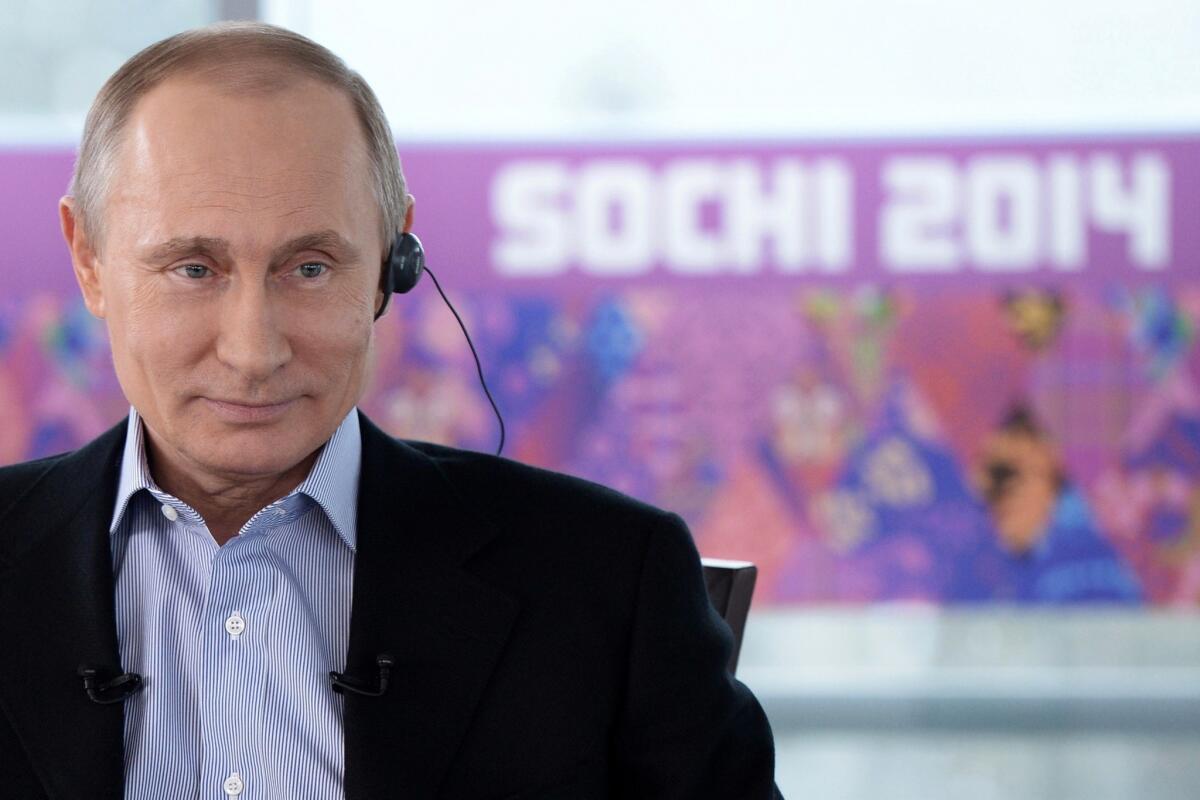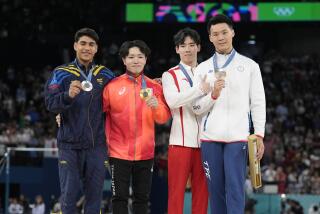The Sochi Olympics and the facade of Russian progress

In the mid-19th century, a Frenchman described the reconstruction of St. Petersburg’s monumental Winter Palace after a fire. To meet the czar’s deadline during a bitterly cold winter, the “unprecedented efforts” included heating the structure’s interior to almost 90 degrees. Of the thousands of laborers who braved the extremes of temperature, “a considerable number died each day,” wrote the Marquis de Custine, “but, as the victims were replaced by other champions who filled their places, to perish in their turn in this inglorious gap, the losses were not apparent.”
Moderation has never been Russia’s strong suit — not in the creation of its imperial capital centuries ago and not today, as it unveils the Winter Olympic Games at the Black Sea resort of Sochi.
Winning the right to host the event “wasn’t just a recognition of Russia’s sporting achievements,” President Vladimir Putin pronounced when the decision was made in 2007, “but a judgment of our country.”
And yet, rather than heralding a shining new post-Soviet resurgence, the Olympics will come closer to a familiar pattern in Russian history: the latest in a series of over-the-top, outrageously expensive projects undertaken at heavy cost to the populace in a questionable attempt to leapfrog Western countries.
Make no mistake about it, these Russian Games are Putin’s personal project to shore up power. They will be the most expensive Olympics ever, at more than $50 billion, almost four times the amount proposed in 2007.
The questionable decision to stage the winter events in a subtropical city created some of the unnecessarily expensive obstacles, but perhaps not as many as another typically Russian development: a staggering amount of corruption.
Several of the companies chosen to remake Sochi for the Olympics are owned or co-owned by Arkady Rotenberg, a childhood friend of Putin. News reports and Russian watchdogs say Rotenberg’s Sochi contracts alone are worth more than $7 billion, which rivals the entire cost for the 2010 Vancouver Winter Games. The owner of another firm charged with building the ski jump was also a vice president of the Russian Olympic Committee. The company’s work was so shoddy, it had to be redone several times as its cost ballooned. Finally, Putin himself fired the committee official.
Catching up to the West is an old game in Russia, which began emerging as an independent power in the 15th century. Searching for an imperial style that would befit their growing status, the princes of Muscovy — the medieval principality that eventually developed into modern Russia — first looked to the remnants of the Mongol Empire that had dominated them for centuries. Czar and boyars, a rough equivalent of European nobles, dressed in Turkic robes and called themselves “white khans.”
But as the eminent Russia historian Edward L. Keenan has argued, it didn’t take long for Muscovites to realize that real power lay not in the East but the West. Failing to impress the crowned heads of Europe, they abandoned the Turkic terms and styles. Instead, Czar Ivan III began copying European princes, sending to Italy for architects to rebuild the wooden Kremlin. The brick walls that stand today date from that period, and the main entrance, the Spassky Gate, still bears a Latin inscription praising the Italian Renaissance architect Petrus Antonius Solarius for its design.
Russians have been importing Western forms and ideas ever since. Typically forced on the people by powerful leaders in great spurts, however, the adoption of those new influences mostly resulted in hybrid forms that turned out to be more Russian than Western — from the laws of Catherine the Great, which omitted many elements of Enlightenment thought that she claimed they reflected, to Soviet communism, whose tenets and practices would surely have dumbfounded Marx.
“Westernization” has long played a role in Russia’s political culture. New institutions and discourse obscured and ultimately helped maintain Russia’s centuries-old way of doing things: important decisions made by a handful of the powerful behind closed Kremlin doors.
Such a political culture requires a facility for bluffing. It remains central under Putin, who routinely misleads his own people, and the West, about his intentions. The best example of his misdirection was the sham four-year presidency of his protege and puppet, now-Prime Minister Dmitry Medvedev, the supposedly reforming liberal.
But if obfuscation has helped Russian leaders maintain power, the yawning gap between their publicly stated intentions and the depressing reality of life in a corrupt, authoritarian country has helped breed envy and resentment of the perennially more prosperous and efficient West, despite claims of Russian exceptionalism.
Putin, who regularly denounces the United States, perfectly fits the mold, having proclaimed Russian civilization to be unique and separate from the West.
Few have bought his recent attempts to soften his image by freeing the former oil tycoon Mikhail Khodorkovsky, members of the band Pussy Riot and other political prisoners. If, as Putin claims, the Sochi Games are a judgment of Russia, they have brought his repression into sharper focus thanks to protests over the country’s new anti-gay law and concerns about attacks by militants from the neighboring North Caucasus, where the oppressive rule of corrupt Kremlin loyalists has spread violence across the region.
The Sochi Games are more than just a facade for current authoritarian tendencies. Russia’s latest grand undertaking to advance its place in the world illustrates the opposite: that the government is still wedded to the centuries-old tradition of puffery and masquerade that instead demonstrates just how far the country lags behind the West.
Gregory Feifer, a former Moscow correspondent for National Public Radio, is the author of “Russians: The People Behind the Power,” which will be published in February.
More to Read
A cure for the common opinion
Get thought-provoking perspectives with our weekly newsletter.
You may occasionally receive promotional content from the Los Angeles Times.










